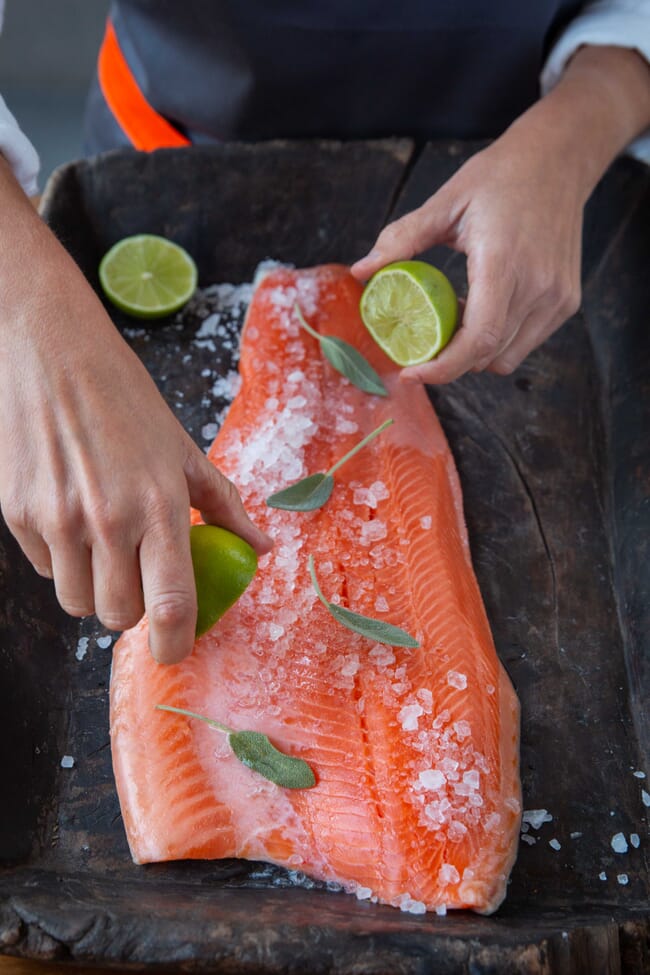
© GSI
The study’s first author and PhD fellow Mausam Budhathoki found that once the test subjects were informed about the production method for the smoked salmon, preferences quickly shifted. The respondents gave the wild-caught salmon a higher rating, despite preferring farmed salmon in the taste test.
In the study, 92 Danes were asked to taste samples of conventional, organic and wild-caught smoked salmon. The first round was a blind test in which test subjects were uninformed about what type of salmon they were tasting. In the second round, the subjects were informed. Following each round, the test subjects assessed their sample preferences.
Expectations rub off on taste
In the blind test, the conventional and organic salmons won big over wild salmon, which scored significantly lower than either of the two farmed products. Beyond that, the conventional salmon tended to be liked more than the organic. However, once the test subjects were informed about the production method, things quickly turned upside down. Among informed respondents, the conventional salmon placed last, while the wild salmon took second and the organic, first.
"The test demonstrates that people’s expectations about a product are based on information they receive, and that this affects their overall taste experience. With smoked salmon, there seems to be a perception that wild-caught salmon ought to taste better than salmon which is conventionally farmed. However, the blind test revealed that people simply preferred the taste of farmed salmon," states the study’s first author and PhD fellow Mausam Budhathoki, who conducted the study in conjunction with his graduate thesis at the Department of Food Science.
According to the researchers, there are several possible explanations for people’s preference for farmed fish.
"One possibility is that people are most familiar with both the taste and colour of farmed salmon, as this is clearly the most widely available type of salmon on the market. Another reason may be that wild salmon has less flavour due to it being leaner than farmed salmon, as was the case here," suggests Mausam Budhathoki.
The role of the knowledge gap
The study, which included focus group interviews as well, reveals that Danes don’t know much about farm-raised salmon.
"It seems that many Danes are quite confused about the differences between various salmon products. This is with good reason, as the salmon production chain is long and relatively opaque. Many factors can influence perceptions about a product. Is there any pharmaceutical residue in it? Does it come from an overfished stock? Has it lived a natural life? And what exactly is fish welfare?" says Helene Christine Reinbach, senior author and an associate professor at the Department of Food Science.
"In the test, wild salmon clearly wins points with regards to information about its provenance. It provides positive associations about being more natural, and consequently, better in terms of animal welfare and health. The fact is, however, that only farmed salmon is eligible for organic certification in Denmark, where there are strict requirements for sustainability, health and animal welfare in production. On the other hand, most wild salmon stocks in our part of the world are in bad shape and have higher concentrations of environmental toxins than farmed salmon."




